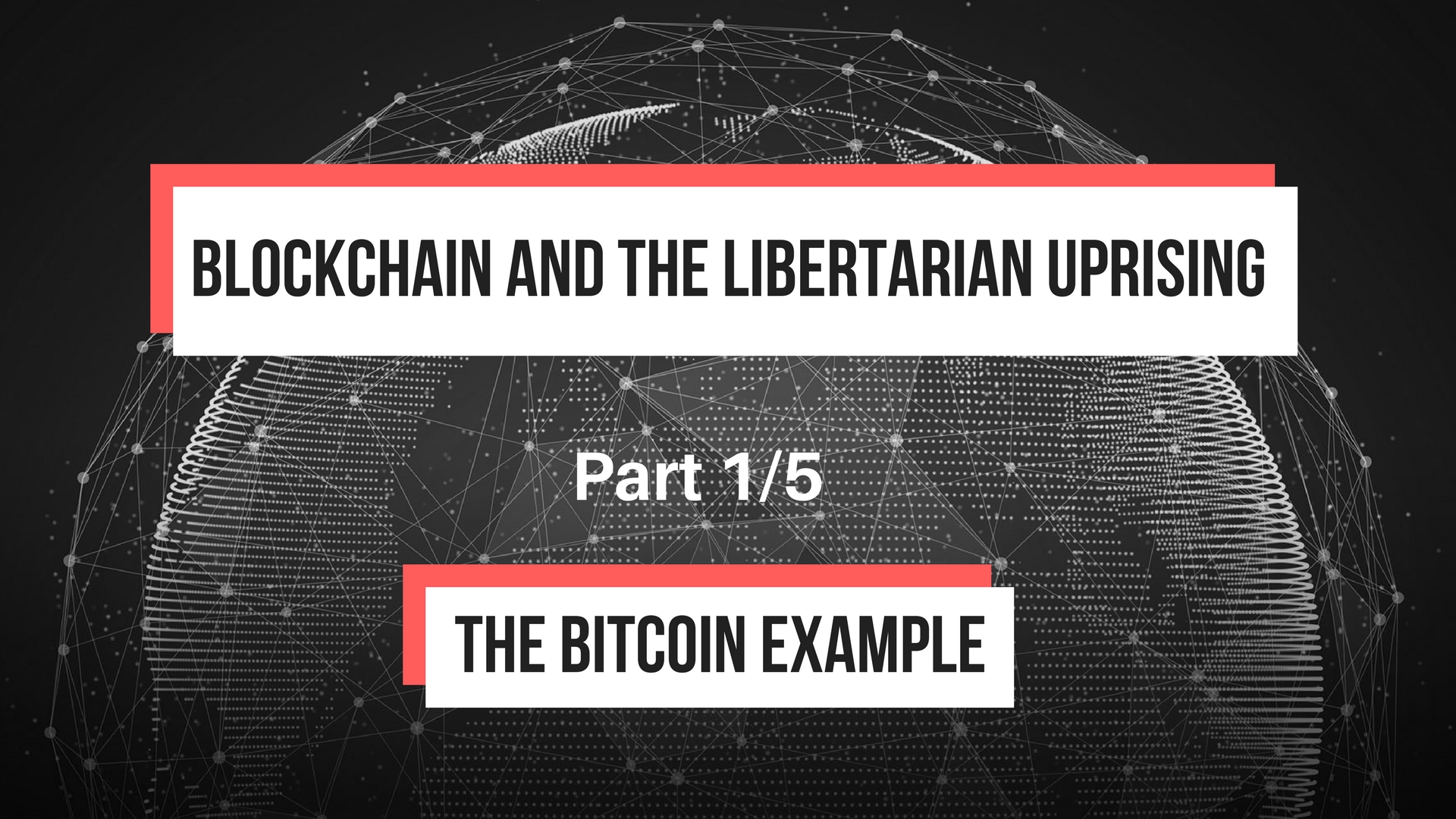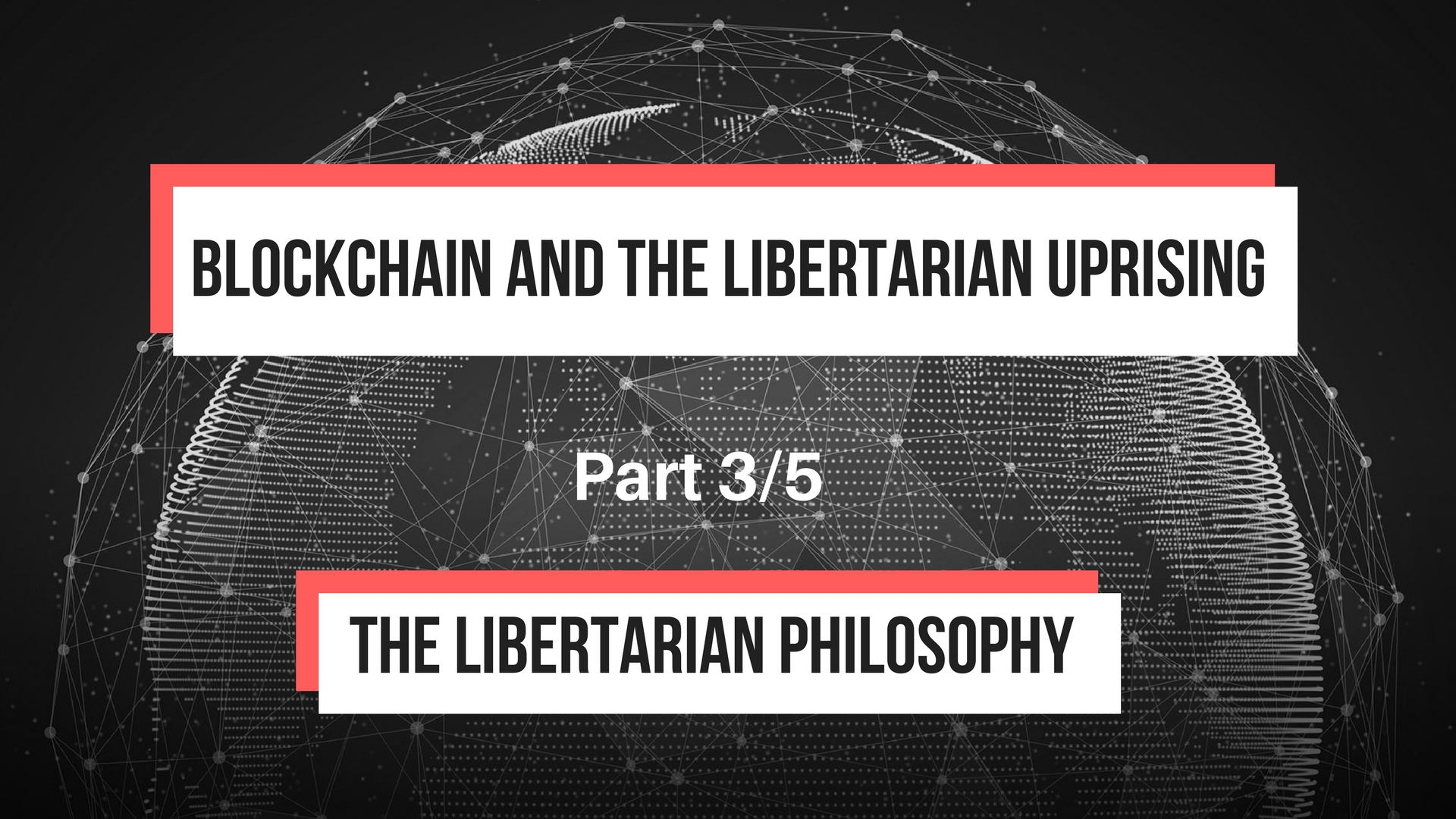Tag: libertarian
-

Blockchain and the Libertarian Uprising: The Bitcoin Example
This is part 1 of a 5 part series adapted in blog format from my senior research paper titled “Blockchain and the Libertarian Uprising“. Why do we trust a currency backed by a government that is fourteen trillion dollars in debt? Ever since 1971, when Nixon announced that US dollars could no longer be redeemed…
-

Blockchain and the Libertarian Uprising: The Libertarian Philosophy
This is part 3 of a 5 part series adapted in blog format from my senior research paper titled “Blockchain and the Libertarian Uprising“. THE LIBERTARIAN PHILOSOPHY Any argument claiming the fulfillment of a political philosophy must first define the tenets of such a philosophy. Additionally, in 2014, PEW research revealed that one in ten…